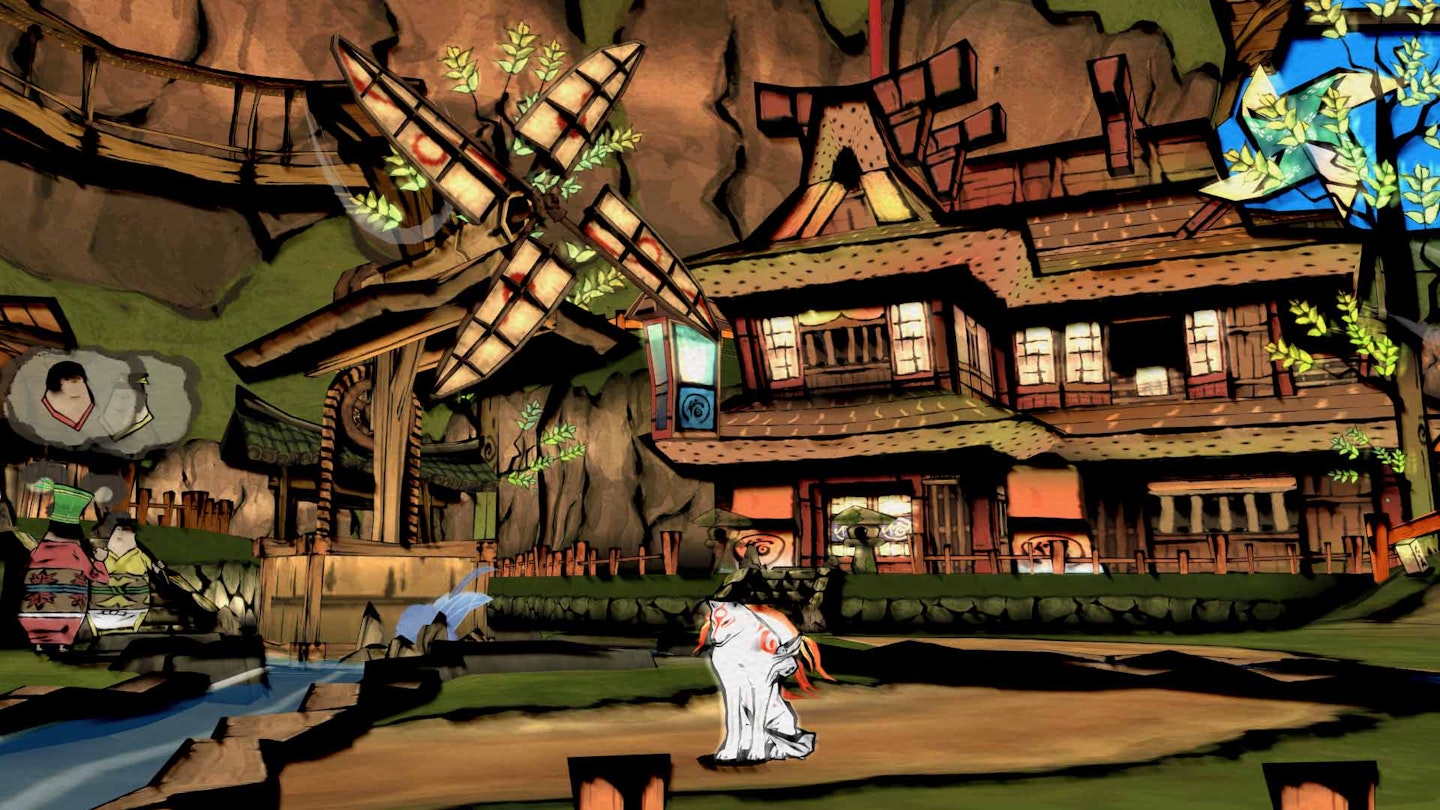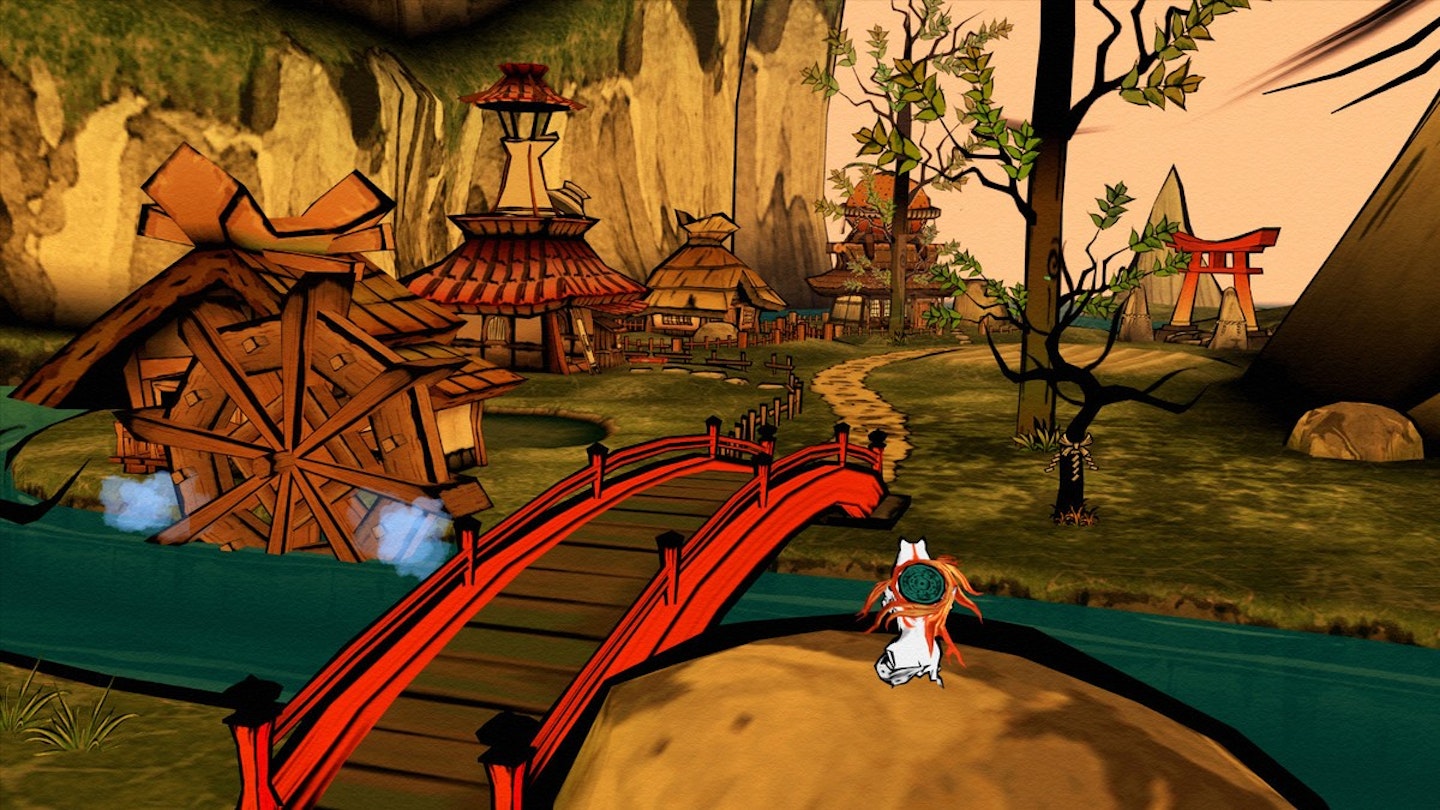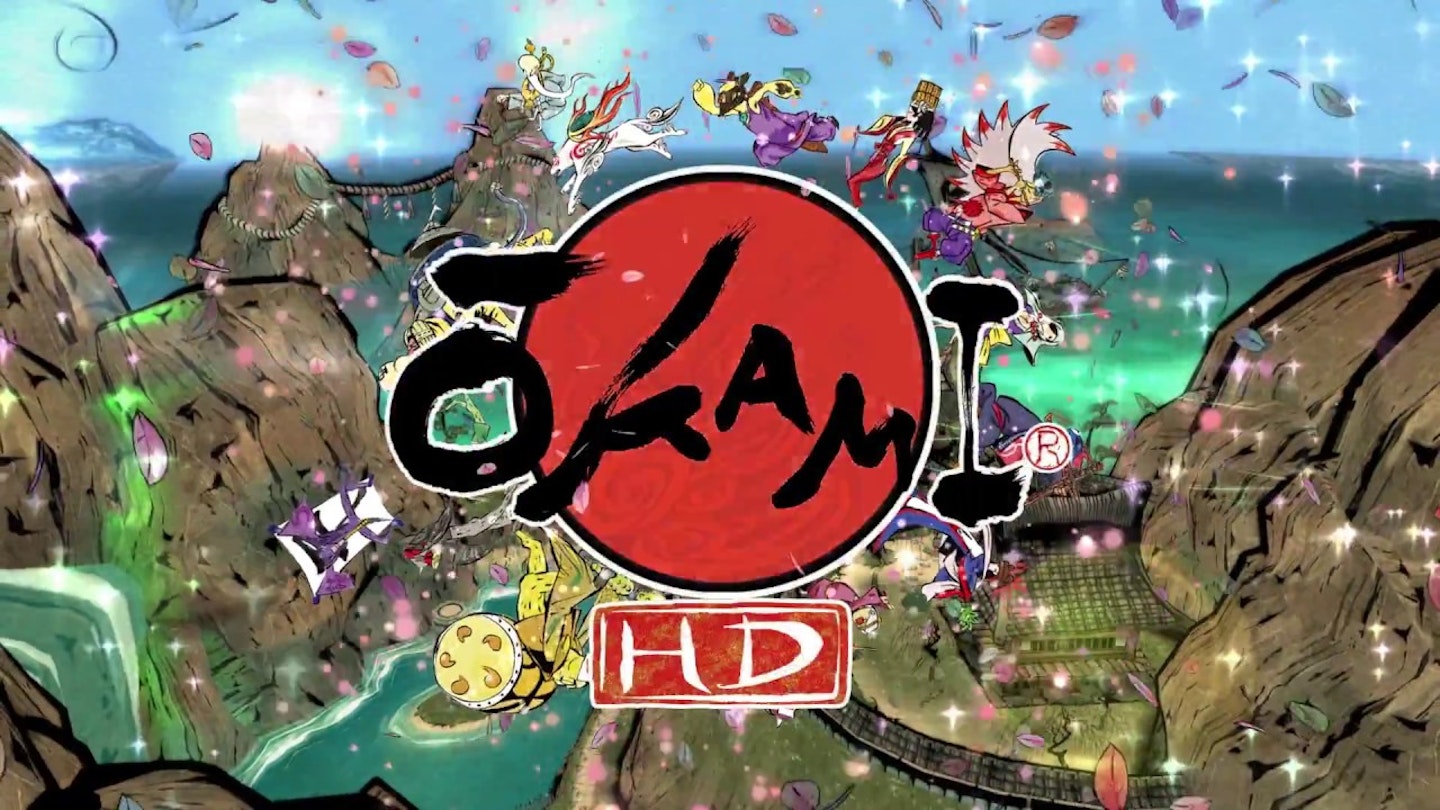A century ago, the white wolf Shiranui helped the warrior Nagi defeat the evil Orochi, but died from her wounds. Now, Nagi's own descendent has awakened the eight-headed demon, unleashing darkness on the world. The goddess Amaterasu, incarnated in the form of Shiranui, must now seek the powers of the Celestial Brush to re-write reality itself and defeat Orochi once and for all.

With that, you can do yourself a favour and skip Ōkami's frustratingly long intro – one of a few lingering hallmarks that mark out the game's dated PS2 origins. Bypassing the lengthy scene-setting is worth it too, letting you dive into the real heart of this still-breathtaking adventure, which remains one of the best titles Capcom has ever released.
For the uninitiated, Amaterasu's quest plays not dissimilarly to classic Legend of Zelda games, with a shared emphasis on exploration, solving puzzles, completing side quests to address the problems of villagers, and pursuing the next major power up. All the while, you're restoring colour and life to the world around you, removing the taint of Orochi with each step you take.
One of the best titles Capcom has ever released.
Ōkami is far more than Link-but-a-wolf though (and keep in mind, this actually pre-dates Zelda's Twilight Princess entry). While initial combat is scrappy – hammer at a button to chain attacks – you'll find added complexity through Amaterasu's Celestial Brush powers, such as freezing the action to finish enemies off with inky swipes. Out of battle, your painterly prowess provides a clever approach to puzzle-solving that other games lack, letting you draw into the world to rejuvenate broken landmarks or restore constellations to the night sky. It's a dreamy, imaginative approach that perfectly matches the mythic folklore of the game world.
And what a world! Ōkami is filled with quirky, lively characters, from perpetual sidekick Issun – a diminutive bug who serves as mouthpiece to the silent Amaterasu – to the charming background figures you can play around with, there's a vibrancy to your surroundings and its inhabitants that makes you actively want to save it. You're not just going through the motions, you're engaged with this reality.
However, the big draw remains Ōkami's stunning ukiyo-e visuals, evoking the woodblock art style popularised (at least in the west) by the likes of Hokusai. With dashes of sumi-e (ink-wash) inspiration too, Amaterasu's adventure remains one of the most visually striking games ever released. This is especially true if you have the home cinema kit to experience it in 4K, with it running in glorious Ultra HD on PS4 Pro and Xbox One X.

That said, with Ōkmai having already received an HD remaster on PS3, the upgrade isn't quite so pronounced here. Audio isn't particularly enhanced over the PS3 version either, and characters' speech is still accompanied by a squawky non-language – our only real complaint. An overhaul of the 'dialogue', even if just replacing it with less irritating chatter, would have been welcome.
Although the PS4 version allows you to swish out some brush commands on the touch pad, and this marks the first time the game has appeared on any Xbox platform, it's bereft of any notable mechanical upgrades for returning players. Still, as a budget priced release (£15.99 RRP) it's worth double dipping if you want the 4K upgrade, and absolutely essential for newcomers.
